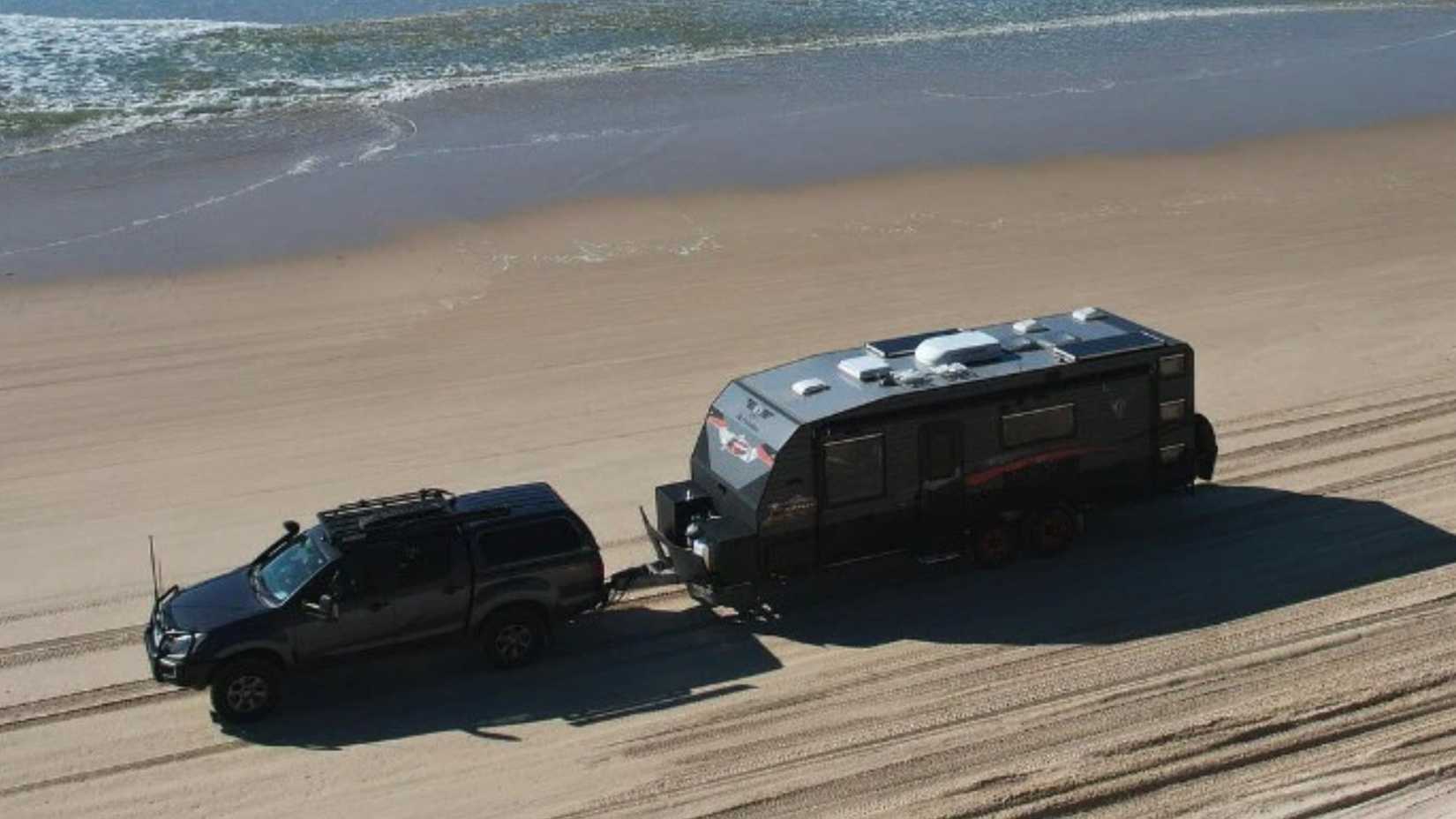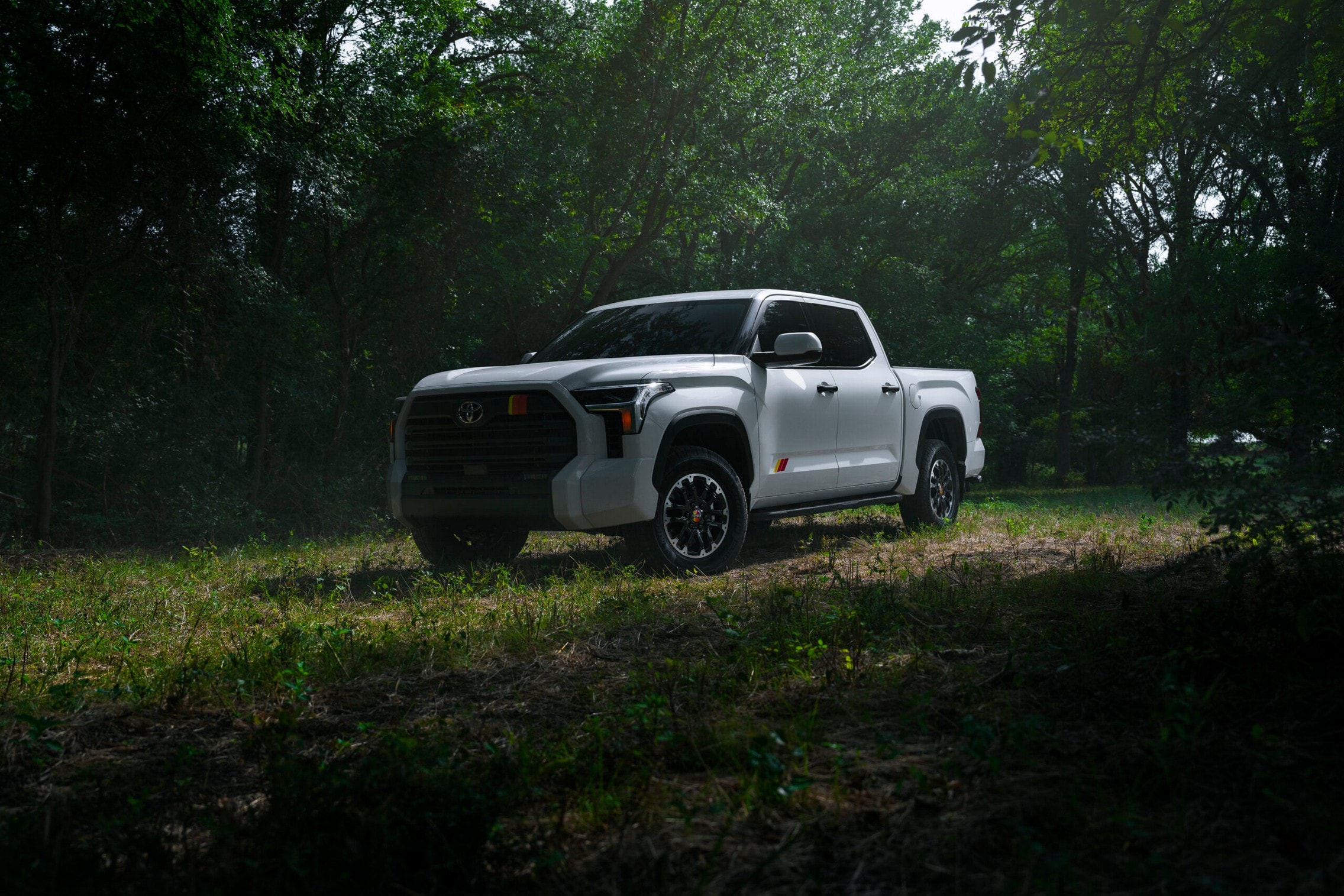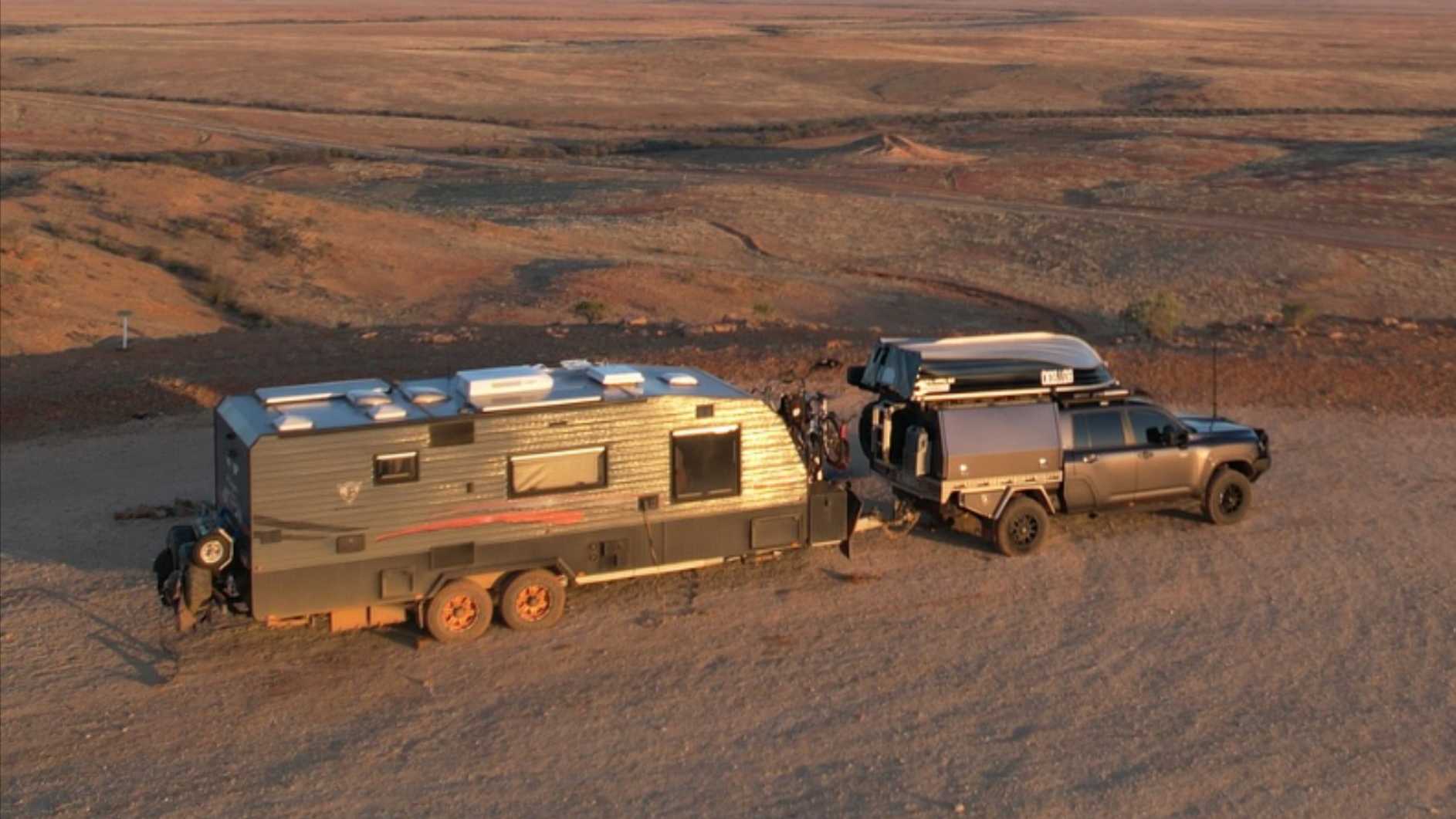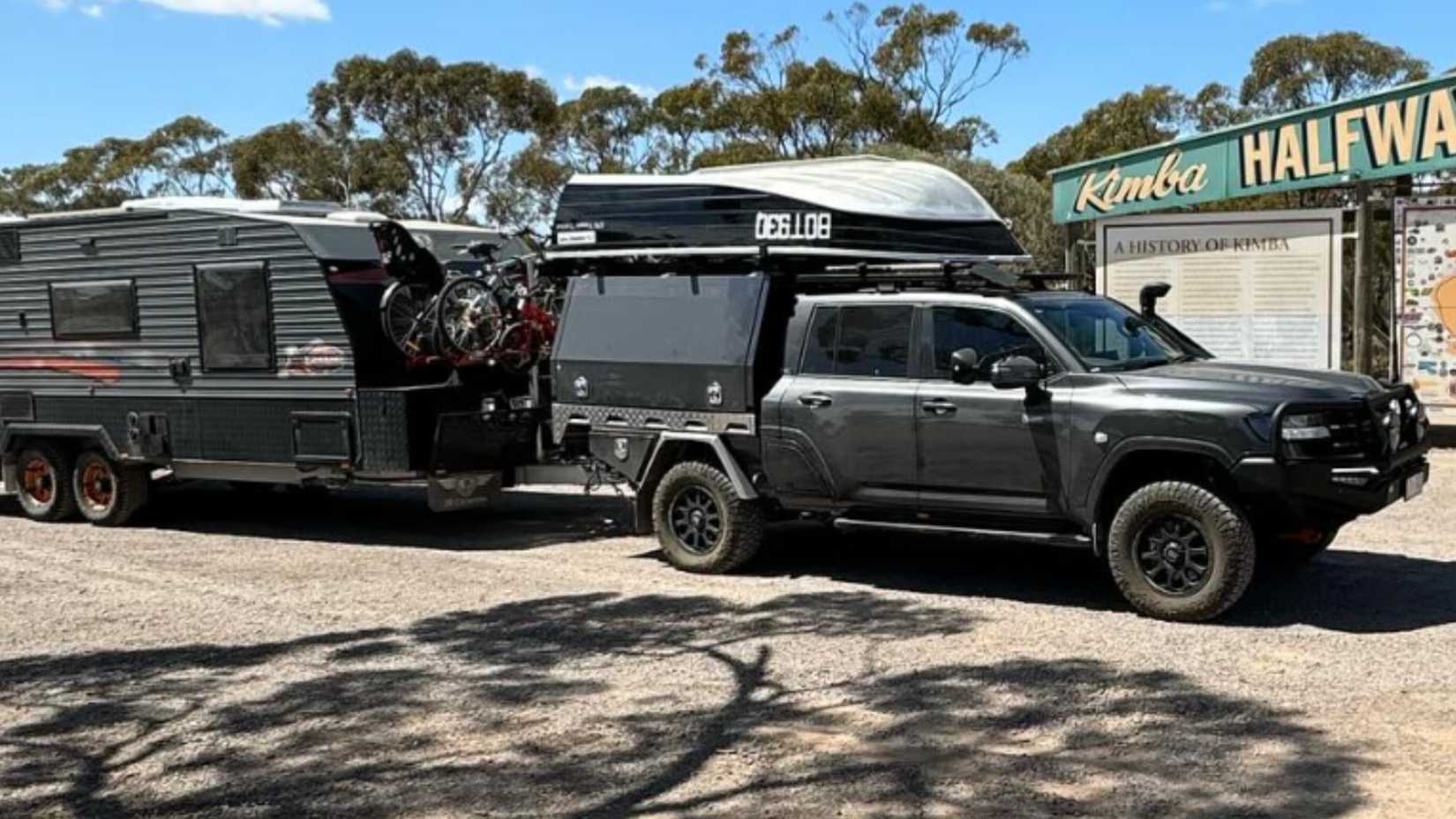A family in Australia is making headlines after Toyota denied their warranty claim on a 2023 Land Cruiser.
The Clements family, who had been traveling around the country in their vehicle, encountered serious engine problems that left them stranded.
This incident has raised questions about Toyota’s warranty policies and the reliability of their vehicles.
Trouble on the Road
The Clements family embarked on an adventurous journey across Australia, trusting their Toyota Land Cruiser to take them safely on their travels. For the first 96 days, the SUV performed well, but everything changed when they experienced engine failure after only 16,777 miles.
This type of breakdown is unexpected for a Toyota Land Cruiser, known for its durability and strength, especially given the family’s careful maintenance of the vehicle.
Maintenance History
The family has consistently serviced their Land Cruiser at authorized Toyota dealerships. Just 2,175 miles prior to the engine failure, they had completed a routine service, ensuring that the vehicle was in good condition.
This history of regular maintenance should typically support their warranty claim, as it indicates that the vehicle was well cared for and that any issues should fall under Toyota’s warranty coverage.
Diagnosis and Denial
After the breakdown, the Clements family brought their SUV to Toyota Rockingham in Perth for diagnosis.
The dealership informed them that they would need to remove the engine for further testing, which raised concerns for the family since they were approximately 2,600 miles away from home.
After a week in the shop, they were shocked to learn that Toyota had denied their warranty claim without providing a clear explanation for the denial.
Questions About Warranty Policy
The denial of the warranty claim has left the family frustrated and confused. Many car owners expect that a major manufacturer like Toyota would stand behind its products, especially for a vehicle known for its reliability.
The situation raises questions about what criteria Toyota uses to determine warranty claims and whether this decision is fair, considering the family’s maintenance record and the unusual nature of the engine failure.
Community Response

The news of the Clements family’s experience has sparked discussions online, with many people expressing their support for the family and questioning Toyota’s warranty practices.
Some have shared their own stories of similar issues with warranty claims, suggesting that this might be a more widespread problem with the manufacturer.
Others emphasize the importance of clear communication from dealerships and manufacturers regarding warranty coverage and the reasons behind any claim denials.
The situation faced by the Clements family highlights the challenges that consumers can encounter when dealing with warranty claims, especially for vehicles that are supposed to be reliable.
As they continue to seek answers and support, their story serves as a reminder for potential buyers to carefully consider warranty policies and service records before making a purchase.
It also emphasizes the need for manufacturers like Toyota to provide transparent communication regarding warranty decisions to build trust with their customers.
Warranty Woes Modified Land Cruiser’s Breakdown Raises Questions
A family in Australia is facing challenges with their modified Toyota Land Cruiser after a serious engine failure during their travels. The Clements family has been vocal about their experience, particularly after Toyota denied their warranty claim.
This situation has ignited discussions about the impact of vehicle modifications on warranties and the responsibilities of both manufacturers and owners.
The Modification Debate
The Clements family’s Toyota Land Cruiser is far from stock. They assert that the modifications made to their SUV were done professionally and are within the vehicle’s capabilities.
The 2023 Land Cruiser, known as the 300 Series, boasts a robust twin-turbo V6 engine and a towing capacity of up to 7,716 pounds. However, there is speculation that the weight of the modifications and the camper they were towing may have contributed to the engine failure.
Toyota’s Response

In response to the family’s situation, Toyota Australia stated that they would not comment specifically on the circumstances of this case.
They confirmed that an investigation had been conducted and that the family received a response from the company.
However, Toyota also emphasized the importance of adhering to their guidelines regarding modifications.
They pointed out that warranty coverage does not apply to issues arising from the installation of non-Toyota-approved parts or modifications.
This means that if any failures or damages are linked to modifications made outside Toyota’s specifications, the warranty could be voided.
This information sheds light on the fine print of vehicle warranties and the potential pitfalls that come with modifying a car.
The Weighty Issue
While the Land Cruiser is designed to be a versatile vehicle capable of towing heavy loads, modifications can alter its performance and reliability. The Clements family argues that their modifications were safe and appropriate for the vehicle’s intended use.
Yet, this situation raises the question of whether the added weight and changes to the vehicle’s structure could have stressed the engine beyond its limits.
Consumer Awareness
This incident highlights the need for consumers to be aware of the implications of modifying their vehicles. While many owners modify their cars to enhance performance or suit their lifestyle, they may unknowingly jeopardize their warranty coverage.
It is crucial for vehicle owners to thoroughly understand the warranty policies of their manufacturers and the potential consequences of any modifications.
Community Reactions
The Clements family’s experience has sparked conversation in various online forums, where fellow car enthusiasts and everyday consumers share their opinions.
Many people sympathize with the family and question whether Toyota’s denial of the warranty was fair, given their maintenance record and the nature of the modifications. Others caution against making significant changes to vehicles if they wish to retain warranty coverage.
The case of the Clements family’s modified Toyota Land Cruiser serves as a reminder of the complexities involved in vehicle ownership, particularly when it comes to warranties and modifications.
As the family continues to seek clarity and resolution, their situation underscores the importance of clear communication between manufacturers and consumers.
It also emphasizes the need for potential buyers to consider the risks associated with modifying their vehicles, especially regarding warranty protections.
Ultimately, this incident may encourage both manufacturers and consumers to engage in more informed discussions about vehicle capabilities and modifications.
Is the Land Cruiser Built to Handle Heavy Loads?
A family in Australia is facing a challenging situation with their modified Toyota Land Cruiser after the vehicle suffered an engine failure during a lengthy road trip.
The breakdown has raised important questions about the vehicle’s towing capacity and how modifications might affect its performance and warranty.
Understanding the Modifications
The Clements family has made several modifications to their Toyota Land Cruiser to enhance its capability for towing their camper. While they argue that these changes were made by professionals and were within the vehicle’s designed limits, the actual weight being towed is unclear.
Photos show the Land Cruiser and the camper, but without specific weight details, it’s difficult to assess whether the setup exceeds the vehicle’s towing capacity.
The Weight Factor

One of the key factors in towing is the Gross Combined Mass (GCM), which is the total weight of the vehicle and the trailer it is pulling. If the GCM exceeds the manufacturer’s specifications, it can lead to performance issues, including potential engine failure.
The modifications made to the Land Cruiser, particularly at the rear, could have increased its weight significantly. If the combined weight is too high, it might explain the engine problems the family experienced.
Warranty Denial and Manufacturer Policies
When the Clements family sought warranty coverage for their engine failure, Toyota denied their claim. It’s common for automakers to void warranties on vehicles that have undergone modifications, especially substantial changes like those made to the Land Cruiser.
Toyota emphasized that warranties typically do not cover damages caused by the fitment of non-approved parts or modifications. This policy can catch many vehicle owners off guard, particularly those who assume their modifications are within safe limits.
The Silence from Toyota and the Family
Since the warranty denial, Toyota has not commented further on the situation. The family has also remained relatively quiet, making few statements about their experience.
This lack of communication leaves many questions unanswered, especially regarding the specifics of their warranty claim and the reasoning behind Toyota’s decision.
The Importance of Vehicle Specifications
This incident serves as a reminder of the importance of understanding vehicle specifications and limits. For owners considering modifications, it is crucial to be aware of how changes can impact not only the performance of the vehicle but also the validity of any warranty.
Many people may modify their vehicles with the best intentions, believing they are enhancing performance, but those modifications can come with risks.
Consumer Awareness and Responsibility
The Clements family’s experience highlights the need for consumer awareness. Before making any changes to a vehicle, owners should thoroughly research the potential impacts, including weight limits and warranty implications.
Consulting with the manufacturer or a qualified professional can provide insights into what modifications are safe and acceptable.
The case of the modified Toyota Land Cruiser raises essential questions about towing capacity, vehicle modifications, and warranty coverage.
While the Clements family believed their Land Cruiser was well-equipped for their journey, the added weight from modifications could have put the vehicle beyond its limits.
As they the aftermath of the engine failure and warranty denial, their situation serves as a cautionary tale for other vehicle owners. Understanding the specifications of their vehicles and the potential consequences of modifications can help prevent similar issues in the future.
Ultimately, this incident underscores the balance between customization and maintaining the integrity and reliability of a vehicle.

